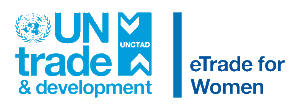
© Shutterstock/Lorenza Ochoa | Amatitán, Mexico. The country’s digital public services are making administrative processes easier for small business owners.
The winning initiatives from Africa, Asia and Latin America exemplify the power of e-government services to facilitate business and investment for inclusive development.
The UN Digital Government Awards 2023, announced on 19 October during the 8th World Investment Forum, lauded progress towards accelerating digital public services in support of the Sustainable Development Goals (SDGs).
These moves have made it easier for entrepreneurs to open and formalize their businesses, and for investors to quickly obtain the necessary licenses to invest in SDG-related sectors such as combating climate change and producing pharmaceuticals in developing countries.
The award ceremony also saw the launch of the UN Digital Government Community, which brings together governments and organizations, and enables UNCTAD to facilitate the exchange of know-how and technology in public service innovation.
Digitalizing government services help catalyse sustainable development
The awards are part of UNCTAD’s broader efforts to bolster measures to facilitate business and investment, particularly in developing economies.
Underscoring these endeavours is the rationale that formal businesses – those registered with the government – can better access loans, create skilled jobs, as well as fund health and social protection systems.
Meanwhile, channeling investment into the SDGs is crucial to bridging an annual $4 trillion funding gap facing developing countries.
By simplifying and moving complex administrative procedures online, governments can reduce business registration times from months to days, while enabling many more to unlock their entrepreneurial potential for the benefit of the economy and society.
“We have seen business registrations double or triple in a very short space of time with more women and youth-owned businesses both formalizing and exporting,” said UNCTAD Deputy Secretary-General Pedro Manuel Moreno.
“This has important knock-on benefits for development.”
Award winners by category
The awards, a partnership between UNCTAD and the Global Entrepreneurship Network – which covers 200 countries – are structured into four distinct categories, each representing a vital aspect of digital transformation in the public sector.
Best digital single window for creating or operating a business
The joint winners were:
Bhutan’s “Government to Business Services”: As the fastest place to register a small business, Bhutan is now building on this success to digitize all economy-related public services, leading to more women and young people accessing government services.
In its first year of operation, almost 1% of the country’s population, 52% of them women, used the service to register a business.
Burundi’s “Guichet électronique de création d’entreprise (Easy Business)”: The digital single window for business creation is one of the world’s fastest small-business registration platforms, allowing users to create a small- or medium-sized enterprises from a mobile phone.
The platform not only enhances government efficiency but also reduces paper usage in administrative processes, providing greater accessibility for women and youth to formalize and grow their businesses.
El Salvador’s “CONMYPE” digital accounting and tax tool: The tool allows micro-entrepreneurs to manage their accounting in a simplified way on a digital platform, and to automatically generate 12 separate tax filings based on those accounts.
Best digital information portal for creating or operating a business
The joint winners were:
Togo’s “Guichet électronique pour la facilitation de l’investissement”: The country’s investment portal transparently provides entrepreneurs with detailed, step-by-step and user-friendly information on how to invest and conduct business.
It goes the extra mile by offering real-time investment opportunities, solidifying its position as a regional benchmark for investors and entrepreneurs.
Mexico’s “Ventanilla única para inversionistas”: It stands out as one of the most user-friendly and advanced tools in Latin America, positioning Mexico as an attractive business destination.
The tool provides entrepreneurs and investors with transparent and predictable insights on conducting business countrywide.
Best trade information portal
The “Central Asia Gateway”, a joint initiative by Kazakhstan, Kyrgyzstan, Tajikistan, Turkmenistan and Uzbekistan, emerged the winner of this category.
It provides direct access to step-by-step guides on licenses, pre-clearance permits and clearance formalities for most traded goods within, to and from Central Asia.
Upcoming digital tools to promote investment in the SDGs
The joint winners were:
Colombia’s digital carbon registry: The digital carbon registry allows companies that emit or remove carbon to register online and receive certification, as required by a new carbon law.
Using standards set by the UN’s Intergovernmental Panel on Climate Change, the registry enables the government to report on its nationally determined contributions – part of its obligation under the Paris Agreement.
It also lays the ground for future carbon markets and exports to countries and markets applying carbon taxes, such as the European Union.
Mali’s digital pharmaceutical regulation portal: It makes it easy for pharmaceutical importers, producers and distributors to rapidly register their products online, cutting times from 18 to three months.
This time-saving initiative will both encourage investment for local production and ensure vital vaccines and medicines are rapidly available to Mali’s population.
Comprehensive selection process
A panel comprising technology, public administration and digital transformation experts judged submissions for this year’s awards.
They evaluated the submissions based on criteria employed with the Global Enterprise Registration portal – a system born out of UNCTAD’s 4th World Investment Forum in 2014.
They assessed measures to ensure digital government systems are sustainable and can be further developed and updated by civil servants without the need for external IT expertise.




